Iron Heart Canning Has Your Favorite Craft Breweries In the Can
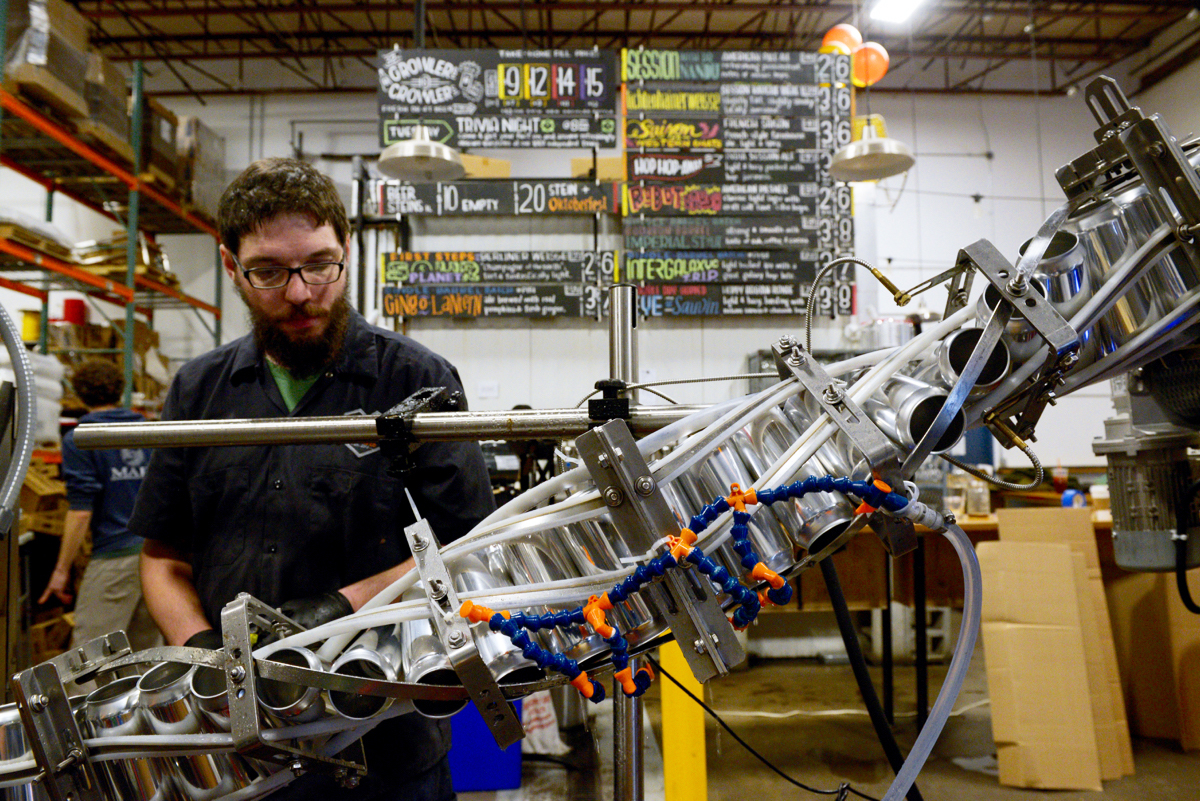
Iron Heart Canning employee Matt Levasseur keeps an eye on cans / Photos by Lloyd Mallison
It was just after 8:30 a.m., but workers at Aeronaut Brewing Co. were already sloshing around puddles of sterilized water in the taproom, packing up branded, cardboard trays in preparation for that weekend’s can sales.
Iron Heart Canning had been on site since 7 a.m., its automated system cranking out about nine barrels of beer per hour. It was loud in the Aeronaut taproom—empty cans clanking around on what’s called a depalletizer as they fell into line on a conveyer belt, water spraying the vessels as they twisted through a double helix on their way to being pumped full of fresh Hop Hop and Away.
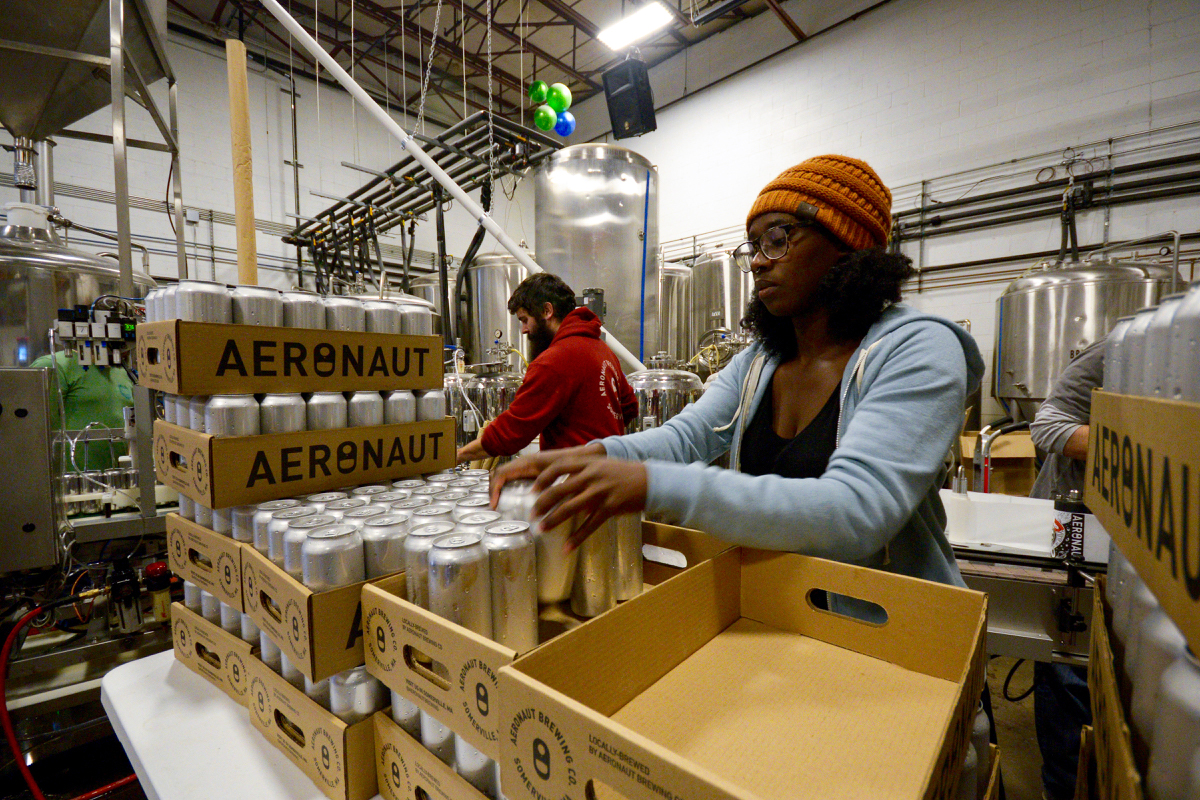
Aeronaut Distribution Manager Forrest Pettengill and taproom supervisor Erika Dickinson assist on the canning line. / Photos by Lloyd Mallison
It was hard to imagine the bar area full of revelers in just eight hours, when Aeronaut would open to the public. But it happened, and that’s one of the many reasons small and mid-sized breweries choose to work with Iron Heart Canning. The New England-based company can set up its modular machinery, package several weeks’ worth of product, and clean (most) everything up before drinkers even catch a glimpse of the work that went into the 16-ounce tallboys in their hands.
“It’s the perfect amount for one day for us,” said Aeronaut cofounder Dan Rassi, who was supporting a handful of his own employees, and the four Iron Heart staffers it takes to package more than 50 barrels of beer. The mobile canning company typically visits his brewery every three weeks, he says. “This is a good solution for smaller runs [of canned beer] for us.”
That day, Aeronaut was packaging the IPA Hop Hop, as well as A Year with Dr. Nandu, and the Great American Beer Festival gold medal awarded pilsner, Robot Crush. It was the first time Iron Heart had brought its new, inline labeling machine to Somerville, so president Joe Marston was on hand to swap out the rolls of printed label stickers for the on-site crew. He explained the new amenity was a step up from what many small companies do—hand-stick a label onto every can—but wasn’t as expensive as purchasing glossy, pre-labeled cans.
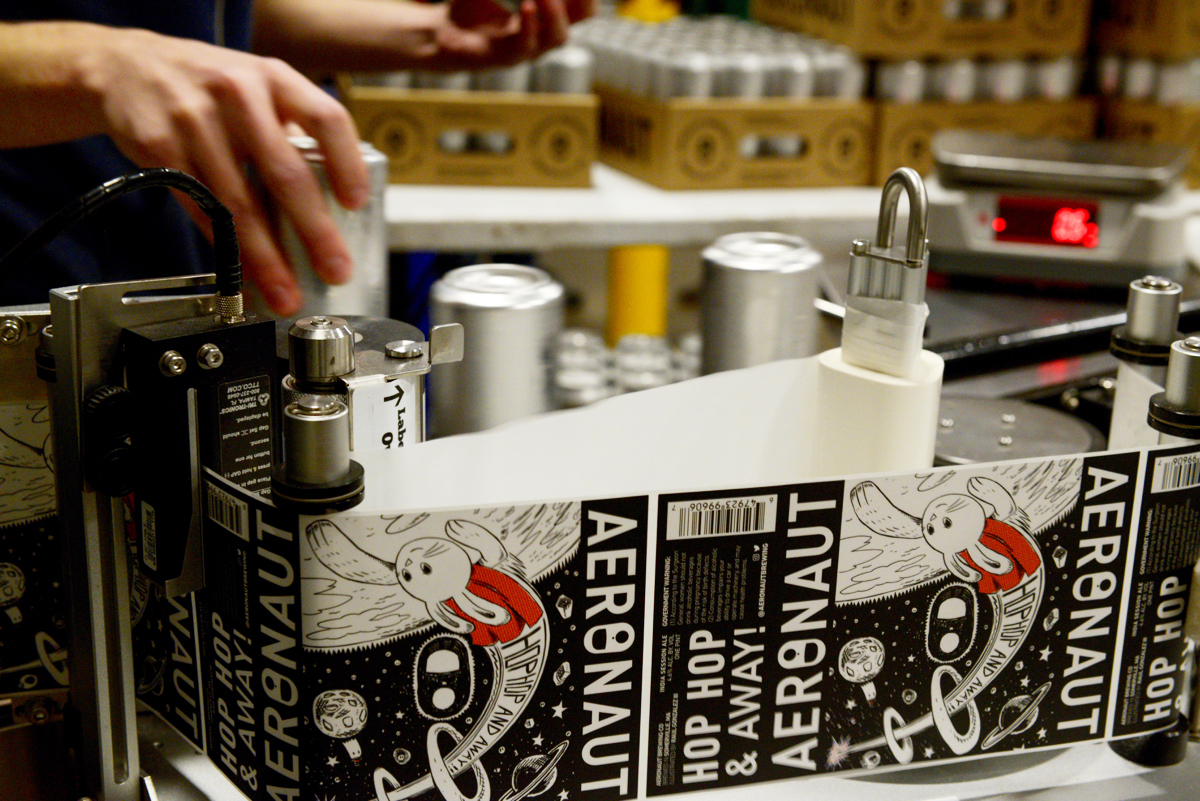
Aeronaut Hop, Hop and Away labels on Iron Heart Canning’s inline labeling machine. / Photos by Lloyd Mallison
“It’s pretty efficient. Today is a learning curve, but it’s going to change the game for a lot of our customers,” Marston said. “Having a right-sized solution for their brand is huge.”
Those solutions—they’re not the same for every brewery partner—is Iron Heart’s modus operandi. As craft beverage producers move away from glass jugs and bottles, Iron Heart helps them continue to get their brand onto store shelves.
“A lot of them are passionate, mom-and-pop owned, husband-and-wife—it’s something we love to be a part of and help. It’s [providing] awesome breweries with an awesome solution,” Marston said.
It was in 2013 when would-be brewery owner Tyler Wille realized mobile canning was a niche he could fill in the Northeast’s growing beer industry. In just three years, the founder has developed a customer base from New Jersey to Bangor, Maine, and Iron Heart has grown to include three warehouses from Connecticut to Burlington, Vt. In 2016, it bought out three other operations, which will extend its network into the areas surrounding Cleveland, Ohio; Richmond, Va.; and Asheville, N.C.
Iron Heart’s fleet includes 15 canning lines, and eight 20-foot box trucks. A canning line like the one packaging Hop Hop and Away would cost a brewery at least $150,000, without every accessory, and without training their staff on it, Marston said.
The canning company’s 70 partners include Wormtown Brewery, Bantam Cider Co., Cape Cod Beer, and 10 other Massachusetts beverage makers; coveted New York City brands Other Half, Greenpoint Beer, and many more.
“They don’t need to package cans seven days a week. They don’t see the need to invest in equipment. We put quality first, they trust us,” Marston says.
Iron Heart still works with Trillium, which is now canning several days a week, before the Canton brewery locks in its own setup, Marston says. Some breweries, like Night Shift, have outgrown Iron Heart. But that’s OK, Marston says. The company is actually happy to see companies get to that point.
Iron Heart isn’t done growing, either. There are benefits to an economy of scale, of course—hence the arrival of the inline labeler. Next up: The company is looking to hire a quality control manager, and add a laboratory.
“There are things we can offer up and help, tests to protect ourselves, sure, but to protect the brewery—they’re putting their product out there,” Marston says.
But the two are hand-in-hand.
“We like to think of ourselves as the best canners, not the best mobile canners,” Marston said. “We’re their canning team when we’re here, and actually, we can do this job better than they could. That’s our mission.”
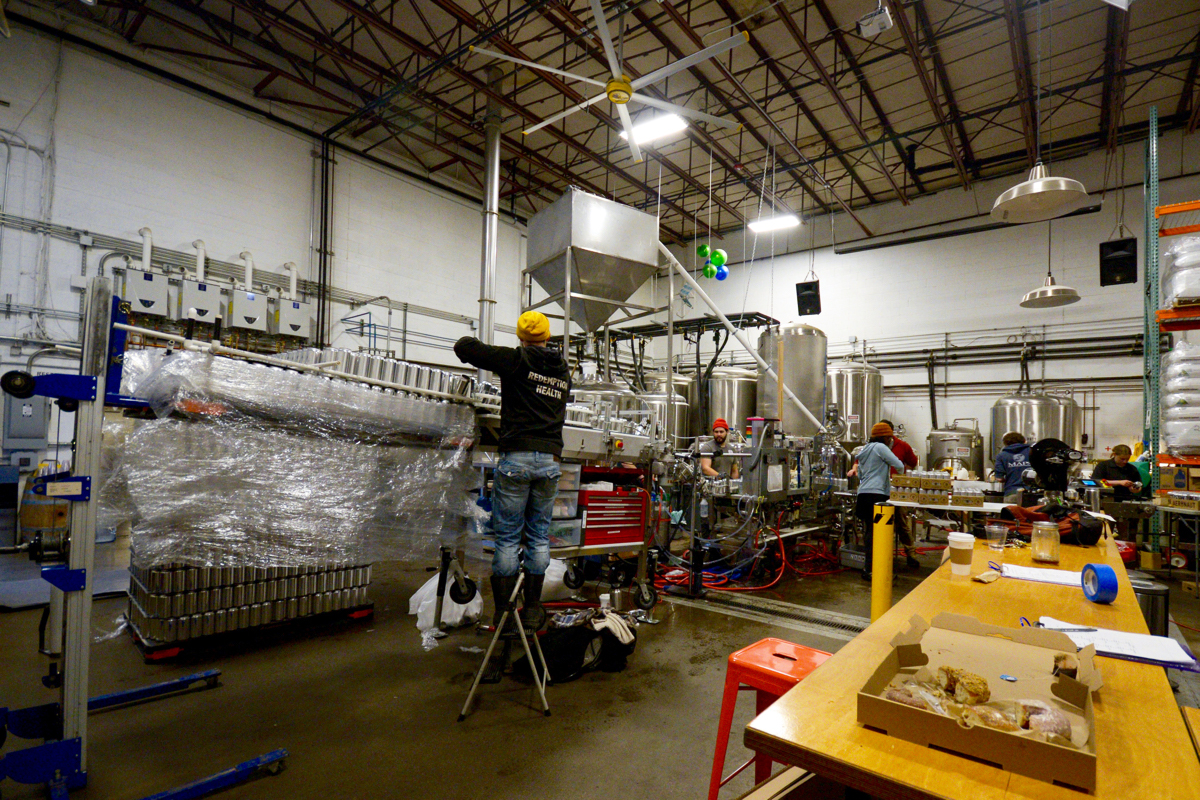
Photos by Lloyd Mallison
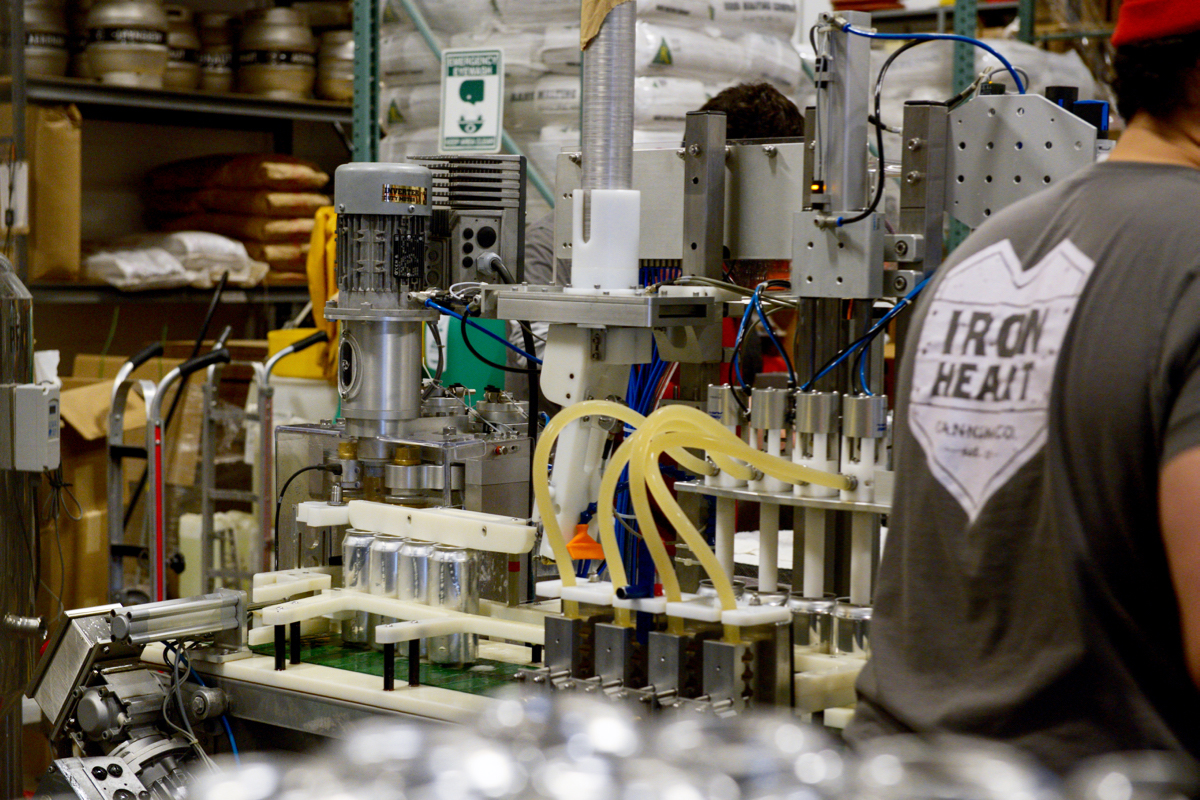
Beer is pumped into 16-ounce cans before they’re automatically sealed shut. / Photos by Lloyd Mallison
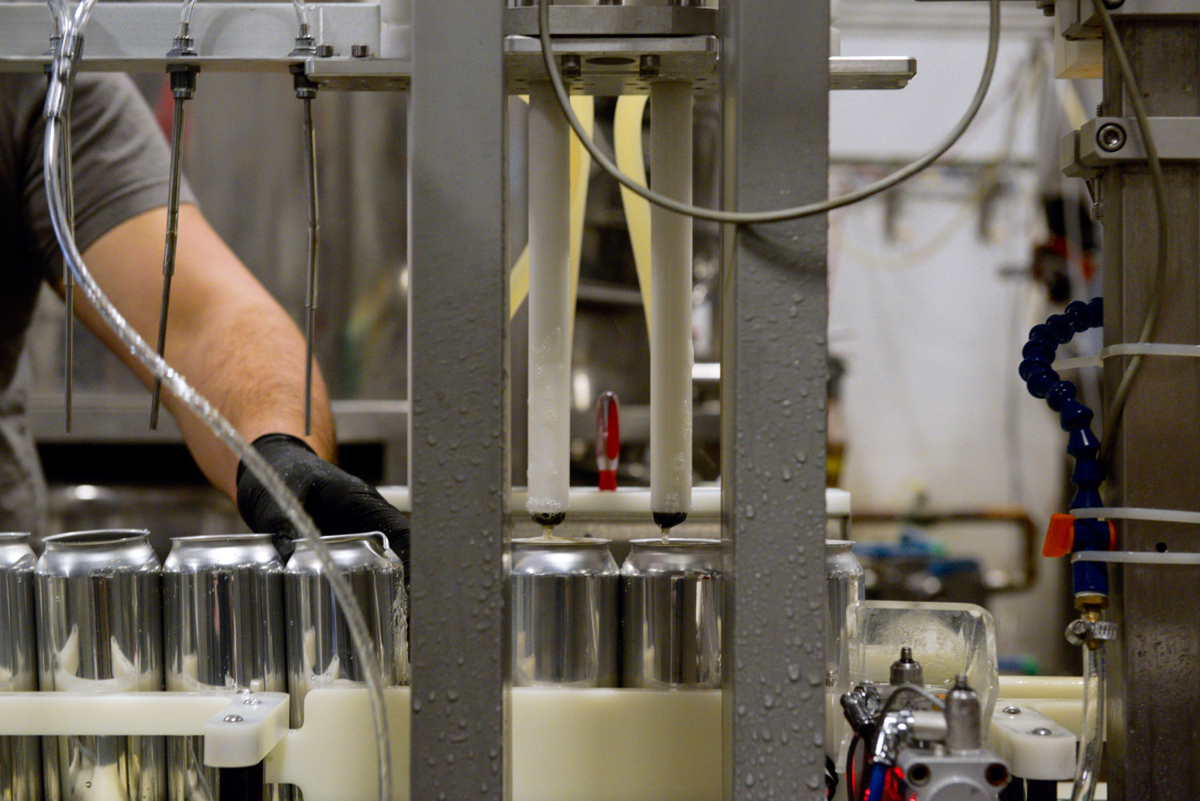
Beer is pumped into 16-ounce cans before they’re automatically sealed shut. / Photos by Lloyd Mallison
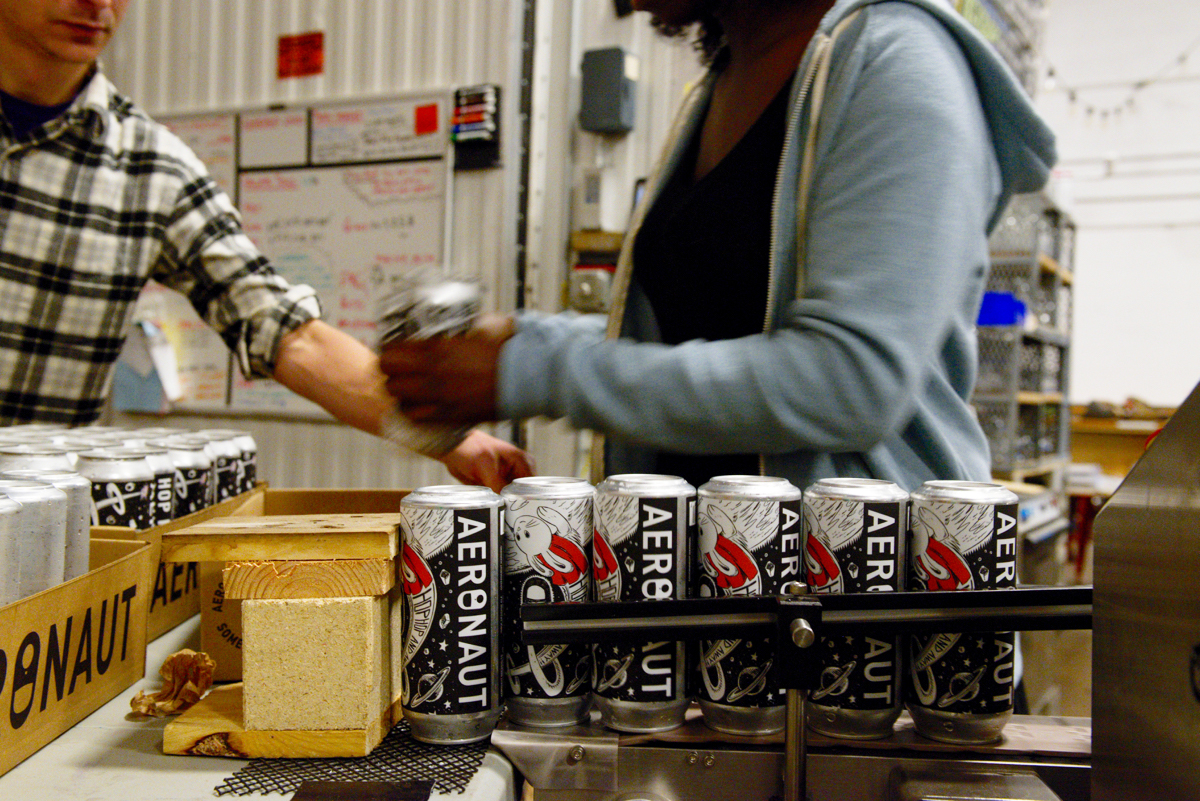
Photos by Lloyd Mallison
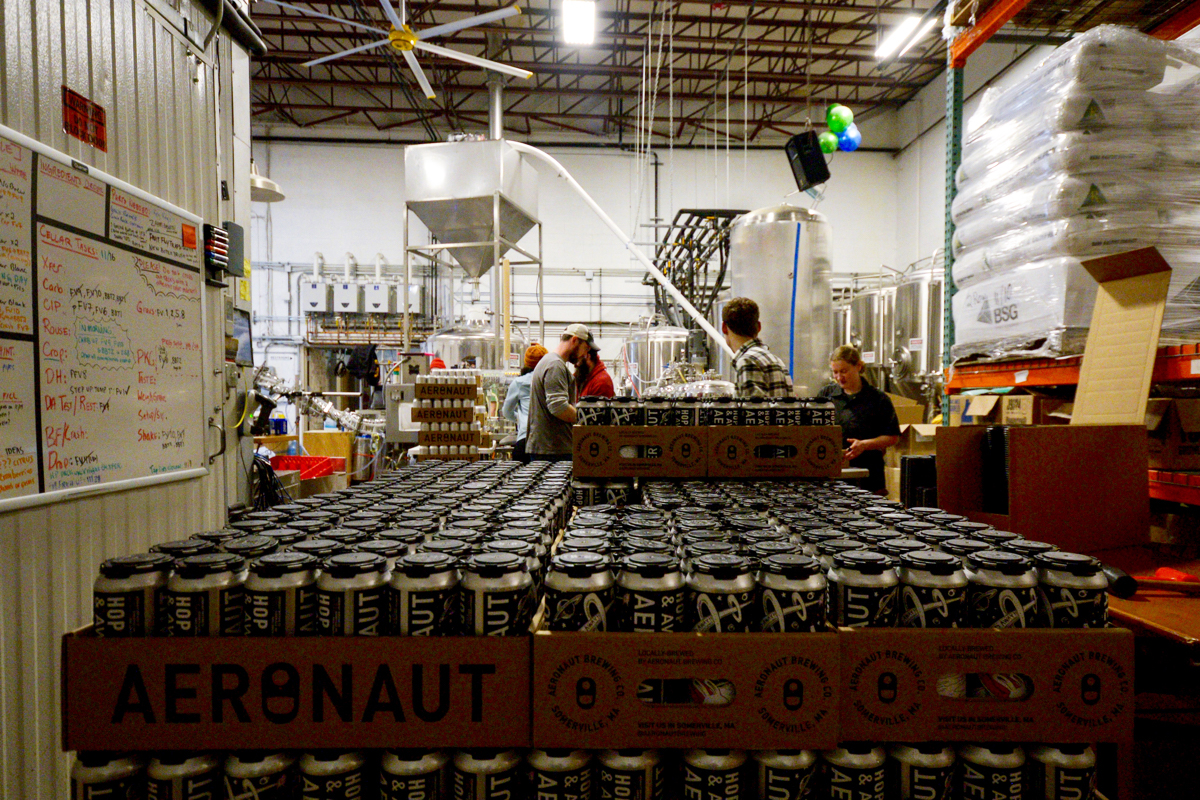
Photos by Lloyd Mallison
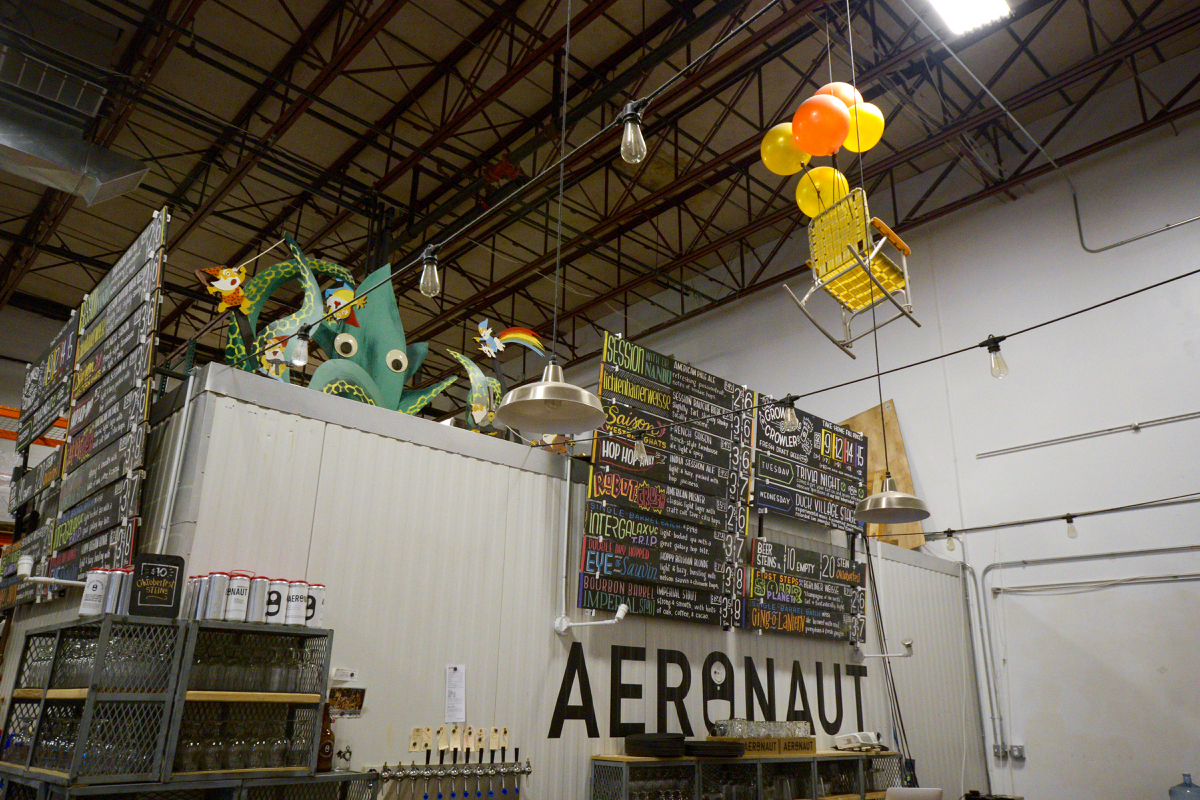
Photos by Lloyd Mallison


